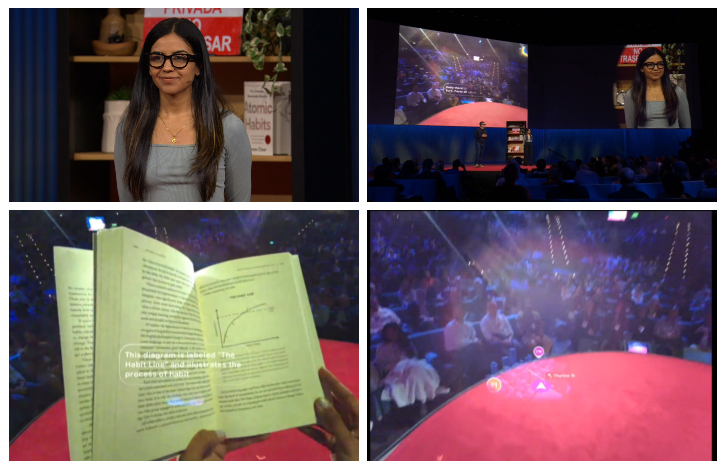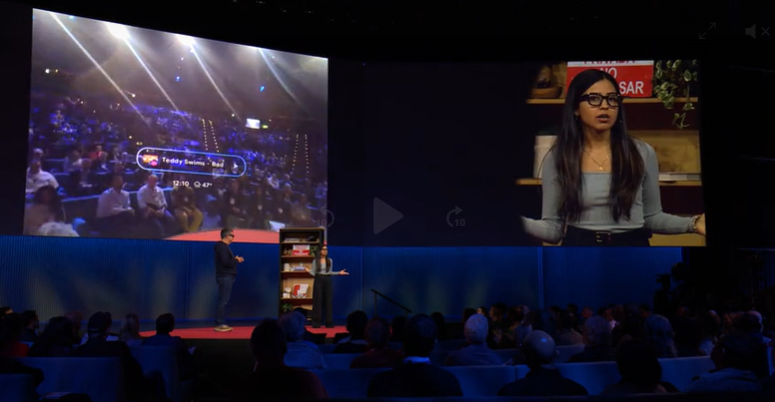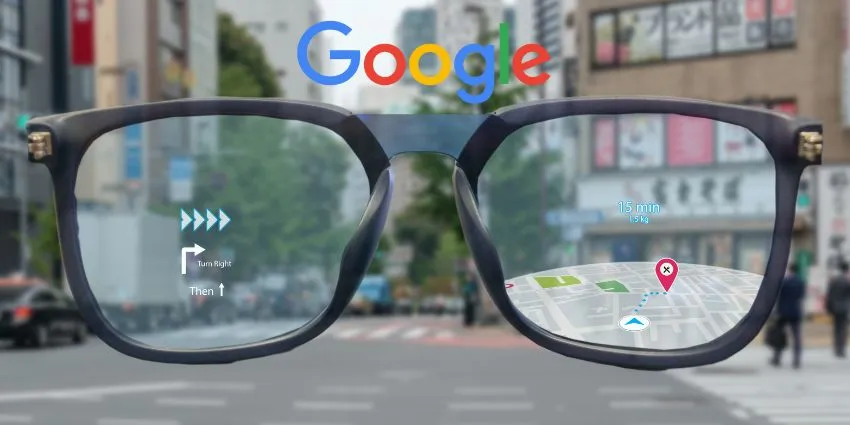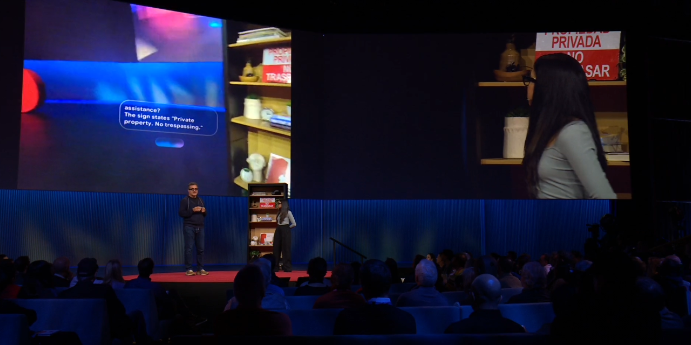Google’s ambitious push into extended reality (XR) has taken a monumental leap forward with the first live demo of Android XR running on prototype smart glasses. During TED2025, Google unveiled a full-fledged demonstration of what could become the future of wearable computing, with powerful on-device AI, real-time translation, and seamless integration of smartphone apps—all visible through a sleek, prescription-capable lens.
Revolutionizing Smart Glasses with Android XR
Google’s journey into the world of augmented reality and smart eyewear has been under the radar for a while, but that changed dramatically during TED2025. The live demonstration led by Shahram Izadi, Director at Google, showcased the full capabilities of Android XR, giving the public a real-time glimpse into a new age of intelligent wearables.
The smart glasses featured in the demo were more than just a conceptual prototype. These glasses were fully functional, integrating a transparent display with Android XR to project rich, interactive visuals directly into the wearer’s field of view. What set this apart is not just the hardware, but the deep integration with Gemini AI—Google’s conversational assistant built to handle complex tasks using visual and contextual inputs.
Glasses That “See” and “Understand” the World Around You
In a stunning live sequence, Gemini AI demonstrated an unprecedented level of contextual awareness. Nishtha Bhatia, the demonstrator, turned her back to the audience, glanced briefly at a bookshelf, and later asked Gemini what book was behind her. The AI responded accurately, identifying the title of the white book she had seen moments before.


This remarkable ability isn’t science fiction—it’s Project Astra, now integrated into Android XR and Gemini Live. The technology combines visual memory with conversational AI, opening new doors for real-time object recognition, environmental awareness, and augmented assistance.
Live Multilingual Translation Without Settings Change
Android XR on these smart glasses also delivered a powerful multilingual demonstration. Without adjusting any settings, Nishtha began speaking in Hindi, and Gemini responded in kind. Earlier, Gemini translated an English sign into Farsi (Persian) flawlessly, offering a taste of how these glasses can break language barriers instantly.
This seamless switch between languages represents a major milestone in real-time augmented reality translation. It turns smart glasses into a global communication tool, allowing users to travel, work, and collaborate across languages without interruption.
A Personal AI Assistant Built Into Your Glasses
The glasses are more than a visual interface—they are a fully interactive smart assistant. During the TED talk, Shahram Izadi used the glasses to view speaker notes in real-time. This capability hints at a range of use cases from professional presentations to daily reminders, schedules, and even on-the-go learning.
Android XR supports full connectivity to your smartphone, granting access to all phone apps, and extending their functionality directly into your line of sight. Whether you’re using navigation, communication tools, or productivity apps, everything you need is now accessible through your smart glasses.
Gemini AI Powers Real-Time Assistance and Object Detection
Further demonstrations illustrated how Gemini could identify objects, retrieve contextual data, and even play music by recognizing a vinyl record cover. Gemini pulled the song from the record instantly and started playing it, showcasing the AI’s ability to merge physical and digital environments effortlessly.
These kinds of interactions are redefining user experiences, taking smart glasses beyond novelty gadgets and into the realm of essential everyday tools.
Navigation Meets Immersive 3D Mapping
Navigation also received a major upgrade. Android XR glasses showcased heads-up directions along with a real-time 3D map, transforming how we move through urban spaces. Unlike traditional maps, this interface overlays navigation onto the physical world, giving users intuitive guidance that aligns with their surroundings.

Imagine walking in a new city while seeing directional arrows floating in front of you, or discovering local landmarks through interactive overlays—this is the promise Android XR is delivering.
Project Moohan: Android XR Headsets Collaborate with Samsung
Alongside the smart glasses, Google revealed its collaboration with Samsung through Project Moohan. This partnership focuses on delivering Android XR in headset form, with a planned launch later this year.
The headset demo emphasized immersive applications powered by Gemini, including Google Maps Immersive View and AI-guided gameplay for titles like Stardew Valley. These functions extend the XR ecosystem into entertainment, gaming, and interactive learning, giving users multiple ways to engage with digital environments.
Prescription Support and Hardware Innovations
One of the most notable features of the prototype smart glasses is prescription lens support. Unlike many competing products, these glasses are designed with real-world usability in mind, allowing users who require vision correction to seamlessly integrate the technology into their daily lives.
This level of personalization ensures mass adoption won’t be hindered by ergonomic or medical limitations. The glasses are lightweight, sleek, and built to blend with existing styles while packing a powerful computing platform within.
Potential Samsung Release: When Can We Expect It?
According to Google, the prototype glasses shown at TED2025 are likely a precursor to a commercial product being developed by Samsung. While no specific date was given, insiders hint at a possible launch in 2026, aligning with Samsung’s growing investment in mixed reality technologies and wearable devices.
Samsung has already teased Android XR headsets and glasses in previous announcements, and this demo gives credibility to the company’s ambition to compete with Apple’s Vision Pro.
The Future of Android XR and Smart Wearables
The TED2025 demo marks a pivotal moment in the development of Android XR and wearable AI technologies. What began as a futuristic concept is now transitioning into a tangible, interactive, and highly functional platform.
Google’s approach with Android XR isn’t just about showing what’s possible—it’s about building an ecosystem where AI, mobile devices, and smart glasses coexist in harmony. With Gemini at the center, Android XR has the potential to become the most intelligent and user-friendly wearable operating system on the market.

